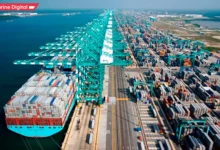
10 Factors Affecting Labor Market in Nigeria
Factors Affecting Labor Market in Nigeria- The labor market in Nigeria is that meeting point where the demand for labor meets with the supply of labor. The market is marked by certain characteristics such as a large informal sector, and issues surrounding unemployment. The labor force is mostly made up of young people of 18-45 years, with a significant part of the population engaged in low-paying jobs. The Nigerian government has implemented various policies aimed at improving the labor market. Some of these factors include increasing access to education and, promoting small and medium enterprises. However, the impact of these efforts is yet to be felt in the eradication of unemployment rates in Nigeria.Factors Affecting Labor Market in Nigeria
Read Also: 10 Economic Factors Affecting Business in Nigeria
👉 Relocate to Canada Today!
Live, Study and Work in Canada. No Payment is Required! Hurry Now click here to Apply >> Immigrate to CanadaWhat is Labour?
Labor is the physical and mental efforts of individuals in the production of goods and services. It is one of the factors of production, along with capital, land, and entrepreneurship. Labor can take many forms, including manual labor, intellectual work, and administrative duty.
What is the Labor Market?
A labor market is a place or any point where the supply and demand for labor intersect. It is the system through which workers and potential employers come together to exchange labor for wages, salaries, or other forms of compensation. The labor market is influenced by some factors which include economic growth, skills level, government policies, and technological change.
Types of Labor
There are various types of labor, which can be classified based on different criteria. Some common types of labor include:
- Skilled labor: These are workers who possess a high level of expertise in a specific field or trade, such as engineers, doctors, and surgeons.
- Unskilled labor: These are workers who do not possess a high level of expertise or training in a specific trade. Examples are manual laborers and factory workers.20 Hp Laptops and their Prices in Nigeria
- Semi-skilled labor: These are workers who possess some level of expertise in a specific field, but their skill is not as much as that of skilled labor. Examples of semi-skilled labor are assembly line workers, machine operators, and receptionists or front desk officers.
Read Also: 10 Factors Affecting Labour Force
Demand For Labor
Demand for labor is the number of workers that employers are willing and able to hire at a given wage rate. The demand for labor is a derived demand. This means it is dependent on the demand for the goods and services that the employees produce. When there is more demand for goods and services, businesses will likely hire more workers to meet this demand. In the same vein, when there is a decline in the demand for goods and services, most businesses will lay off workers to stay afloat with their operational costs
Characteristics Of The Labour Market
The labor market can be characterized by several key factors:
- Flexibility: The labor market is volatile and undergoes consistent change as the level of employment and wages continue to adjust to the changes in demand for goods and services.
- Competition: Competition is always present in the labor market as employees compete to get the limited jobs available while employers compete to get the best hand for the job
- Segmentation: The labor market is divided into different sections and segments, such as the formal and informal sectors, skilled and unskilled sections, etc.
- Imperfect information: The information in the labor market is incomplete. This means that employers and workers may always not have complete and sufficient information about job opportunities, requirements, and qualifications.InformationGuideNigeria
- Mobility: The labor market is high mobility. The workers can move from one job and industry to another.
Read Also: Various Factors Affecting Health Globally And in Nigeria
History Of The Labour Market In Nigeria
The history of the labor market in Nigeria has a close relationship with the country’s economic and political terrain. Before the arrival of Britain, Nigeria’s economy was primarily agrarian. The labor market consisted largely of small-scale traders and farmers, with a small number of skilled workers like blacksmiths and weavers
During the colonial period, a system of forced labor was introduced by the British and this resulted in the exploitation of the local population.105 Good Morning Love Messages
👉 Relocate to Canada Today!
Live, Study and Work in Canada. No Payment is Required! Hurry Now click here to Apply >> Immigrate to CanadaAfter independence, the labor market tilted towards formal employment in the oil sector and government, however, the informal which comprises small-scale businesses and subsistence agriculture has some level of priority.6 Best Shop Basmati Rice in Nigeria and their price
In recent years, Nigeria has tried to diversify its economy and the government sector, however, the labor market still experiences certain challenges and the unemployment rate is still a cause for worry.
Read Also: Environmental Factors Affecting Agricultural Production in Nigeria
Factors Affecting The Labor Market In Nigeria
The factors include:
- Economic growth: The growth of the gross domestic product is an important factor that affects the labor market in Nigeria. When the economy experiences a boom, there will be increased demand for labor, and unemployment rates will be low.
- Changes in technology: Technological development can lead to an increase in productivity, and this will lower the number of workers needed in various sectors as machines can now do the work of many factory workers.
- Level of Education and Skill: A very skilled workforce can will result in increased demand for labor, however, an unskilled workforce can lead to decreased demand for labor, especially with the rapid changes in the various industries.JAMB Portal
- Government policies: Government policies also affect the labor market. Policies that increase provide tax incentives for businesses will lead to increased demand for labor, while policies that limit labor rights can lead to a decrease in the demand for labor.
- Political stability: Political stability is also a major factor that affects the labor market in Nigeria. A stable political environment will attract foreign direct investment and more jobs will be created, while political instability can discourage investment and lead to job losses.200 Romantic Love Message
- State of Infrastructure: The state of the country’s infrastructure also affects the labor market in Nigeria. Without good infrastructure, businesses will find it hard to operate and create jobs.
- Availability of Natural resources: Nigeria’s abundant natural resources have historically been a major factor affecting the labor market. The oil and gas sector has been the sole driver of growth and employment.
- Population growth rate: Nigeria has a high population growth rate and this puts pressure on the labor market as the number of people looking for jobs increases.NYSC Portal
- The proportion of the Ageing population: Nigeria’s population is aging and this can have an impact on the labor market by reducing the number of people available to work.
- Migration: Migration of individuals can also affect the labor market in Nigeria since people move from one place to another and as such the demand and supply for labor.
Read Also: Factors That Affect The Teaching And Learning Of English Language In Nigerian Schools
Conclusion
In conclusion, the labor market in Nigeria is largely informal and characterized by high unemployment, The Nigerian government has implemented various policies and programs intending to improve the labor market. Some of these programs are providing access to adequate education and training and implementing policies that affect foreign direct investment. However, these efforts are yet to significantly reduce the level of unemployment in the country.
Check JAMB Result
Check and Confirm: How much is Dollar to Naira







